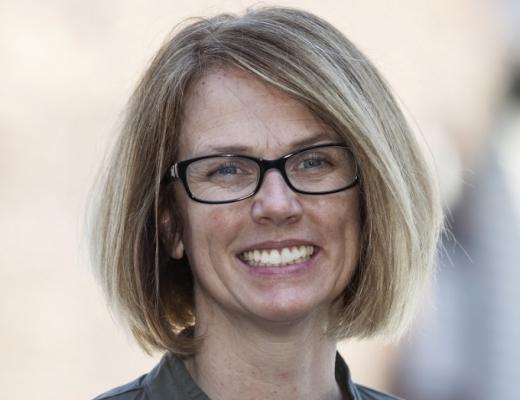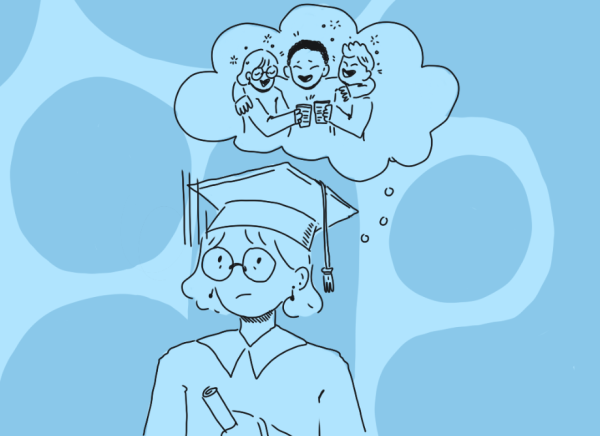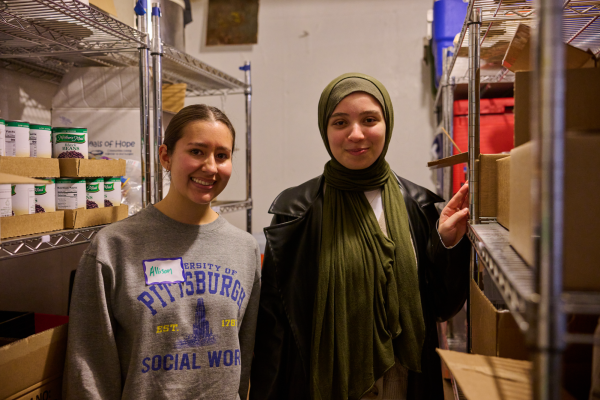Layers of loss: The way we grieve during a pandemic

Amy Degurian is a lecturer in the School of Social Work.
March 31, 2021
According to Amy Degurian, a lecturer in the School of Social Work, grieving has significantly changed during the COVID-19 pandemic. She emphasized the difficulty in the grieving process during a pandemic.
“During the pandemic, it has been incredibly hard for us to tend and befriend people who are grieving,” Degurian said. “It is our natural way of showing support, we have this sort of, I think innate calling to be with people, when they grieve.”
With the loss of millions during the COVID-19 pandemic, people need to properly grieve now more than ever. The ways people typically grieve have changed during the pandemic, partly because of social distancing protocols that leave people isolated from their loved ones. Degurian and other University experts described these changing practices and coping after the pandemic ends.
Degurian said she believes the grieving process is more difficult during the pandemic because of the isolation people experienced due to social distancing guidelines.
“We didn’t have any funerals or gatherings so you could not tend to friends, we had to shelter in place and stay isolated at a time when isolation was exactly what we didn’t need in terms of grief, and so it left people without the stereotypical ways of gaining support,” Degurian said. “And then for those of us who want to give support, we didn’t have that option, either.”
Degurian said due to the isolation and the loss of many important events, loved ones and sense of normalcy, people are experiencing far more levels of grief than they may realize.
“As a result, I think people have had multiple layers of grief during this time, people are grieving the loss of loved ones, they grieve the loss of normalcy and we’ve grieved the loss of this idea that the world is safe,” Degurian said.
To help adapt, Degurian said many people invented new ways of holding funerals and grief gatherings. She encouraged people to safely connect with others and maintain a support group using tools such as social media. But she added these methods still can’t replace the physical presence of loved ones.
“Very quickly folks got industrious and there was the advent of the Zoom funeral and drive-through funeral viewings, and we got creative, but it didn’t replace or provide the kind of support that really was needed for folks,” Degurian said. “It just really made it complicated and isolating.”
Students have access to some resources on campus as well. Heather Arment, a lead clinician at the University Counseling Center, said students should consider using some of the resources the center offers, such as grief counseling sessions and virtual drop-in hours.
“I typically see a handful of clients experiencing grief over a given semester in addition to the support group we offer,” Arment said. “I think students sometimes hold off on seeking counseling while grieving for several reasons — the stigma of grieving, misinformation that counseling is only for people with diagnosed mental health concerns, fear and worry about getting vulnerable about the loss.”
Arment added that students often get caught up trying to say the right thing when trying to comfort a friend who has suffered a loss, and they should just be present.
“Just be there, listen, acknowledge the loss and show no judgment,” Arment said. “Try to remember that grief is an individual process that is nonlinear and follows no specific timeline so don’t try to fix the situation and remember to avoid the cliches and platitudes.”
Tammy Makoul, an adjunct professor in the School of Social Work, said she hopes moving forward that people have more empathy for each other and understand that grief has many levels.
“From these shared experiences, I hope we as a society will be able to manage one another’s pain, and to move forward together in understanding that grief and loss is not specific to death, but rather can be applied to many other areas of our life, such as things that we hoped for and things that we miss out on doing,” Makoul said.
Degurian said she has observed many ways of safely holding last rituals and memorials, which she thinks is a good way of adapting to the pandemic guidelines, and she foresees a changed opinion on how and when to host funerals in the future.
“I do think that Zoom has been one way that folks have been able to connect and at least put faces to voices, and there were a number of funeral homes that did drive-through viewings, where they were able to sort of meet that need in these creative ways,” Degurian said. “I think we’re going to see a real uptick in memorial services, months and years after the time that the person has actually died, and I think there will be a reframing of when is it appropriate to hold the funeral.”
Makoul added that, as a nation, she hopes we become more resilient from the shared experiences and build a stronger community bond through the pain and the grief over the loss of loved ones.
“Pain cannot be minimized and so we just have to understand that grief and loss comes in many forms, and to be able to support people in that means to validate their experience, to empathize with them and to really leave space for people to share,” Makoul said. “The more we do that, I think as a community and even as a nation, the more healthy we will become and the more resilient we become.”







